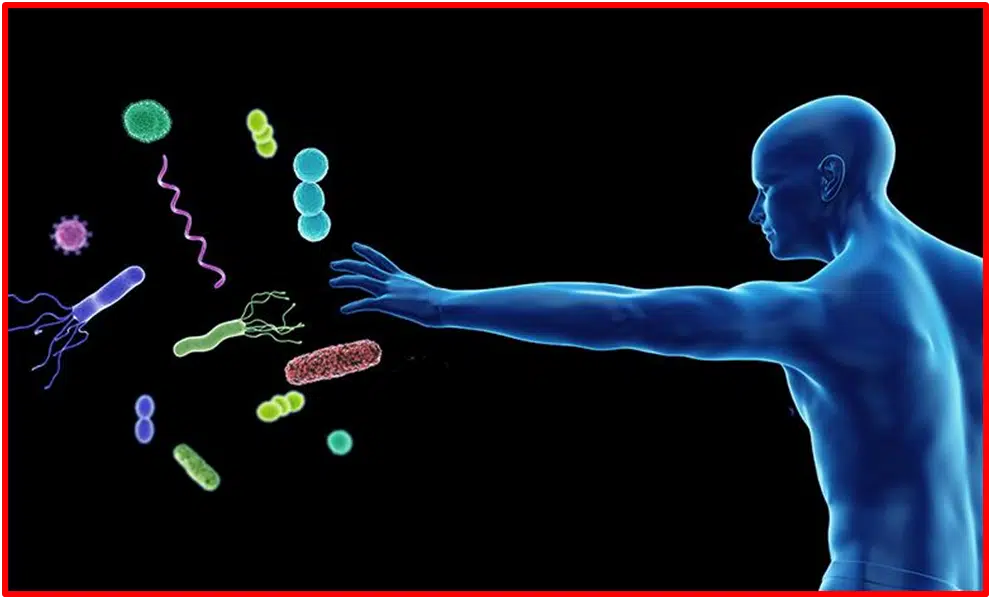Does a Covid infection guarantee protective antibodies?

Among the most extraordinary questions of the overwhelming COVID-19 pandemic is the toughness of resistance and time to likely reinfection. There is restricted direct information on SARS-CoV-2 long-term immune responses and reinfection.
Antibodies are essential for the body’s immune response to infection. Antibodies that neutralise SARS-CoV-2, which causes COVID-19, are typically recognisable in the initial few weeks after disease. The presence of antibodies demonstrates that an individual was infected with SARS-CoV-2, irrespective of whether the individual had a severe or mild infection or even no symptoms (asymptomatic).
Antibodies bind to specific sequences of amino acids, typically 5 – 8 residues in length. These sequences are known as “epitopes.” Monoclonal antibodies bind to one epitope, whereas polyclonal antibodies (pabs) bind to multiple epitopes.
This significant difference is because each monoclonal antibody is derived from one hybridoma cell line. In contrast, each polyclonal antibody is a pool of antibodies produced in response to an immunogen.
Test for COVID antibodies
The immune system responds differently when a persons’ body is infected with the virus that causes COVID-19, SARS-CoV-2. One fundamental response is to produce antibodies – these are particular molecules in your body that identify the virus, help get rid of it, and provide protection against future infections. Examining the presence of virus-fighting antibodies in their blood is the only way of telling whether someone has been infected with COVID-19.
There are two types mainly:
● Anti-N tests seek antibodies that recognise a molecule inside the SARS-CoV-2 virus called the nucleocapsid (N). Anti- N antibodies are produced if you’ve been infected with COVID-19 (natural infection).
● Anti-S tests seek antibodies against the spike protein (S) on the virus’s surface. Because COVID vaccines are based on the spike protein, these antibodies can be present after natural infection and a vaccine.
A polyclonal antibody against the SARS-CoV-2 recognises multiple epitopes, reducing the risk of viral escape. Long-term experience underscores that one of the significant advantages of polyclonal antibodies is that they can be produced in large quantities.
Antibodies and COVID-19
Antibodies to SARS-CoV-2, the infection that causes Coronavirus, can be identified in the blood of:
● Individuals who have recuperated from Coronavirus
● Individuals who have been immunised against Coronavirus.
Getting immunised is considered by many to be a more secure choice than catching Coronavirus, and vaccination against Coronavirus is suggested, particularly for the vulnerable, such as those with weakened immune systems, co-morbidities and the elderly. Recent data from the USA, published in the Lancet, suggests that 85% of all COVID deaths in the USA have been people with at least 3 existing co-morbidities, such as diabetes, heart disease, lung disease, malignancy.
Data also shows that patients with a BMI greater than 25 also experience more severe outcomes from COVID infections. Obese individuals not only do not make sufficient levels of neutralising antibodies against this virus, but when they are infected, they appear to make high levels of auto-antibodies, which worsens auto-immune / inflammatory processes in the body.
It is important to remember that some individuals with SARS-CoV-2 antibodies may get infected even after vaccination or after recovering from a past infection. Based on past data by researchers, the risk of reinfection is descending for at least the first six months following infection with the virus that causes COVID-19 analysed by a laboratory test.
A vaccine breakthrough infection is when a person fully vaccinated gets COVID-19. No vaccine is fully effective, and many breakthrough infections have been recorded. The infection rates among fully vaccinated people in Israel highlight this in particular. The risk of severe illness, hospitalisation, and death from COVID is, however lower for vaccinated people than unvaccinated people. Having antibodies plays a critical role to help prevent severe illness, hospitalisation, and death, specifically when reinfections or breakthrough infections transpire.
For many diseases, including COVID-19, antibodies are expected to decrease or wane over time. After a long enough period, antibodies can fall below a level that provides adequate protection called threshold protection
When antibodies drop below the protection threshold, you may become more vulnerable to severe illness. It still isn’t clear the threshold of protection for antibodies for the virus that causes COVID-19 or how long it takes these antibodies to wane; scientists worldwide are researching these. Even after antibodies wane, your immune system may have cells that identify the virus that can act quickly to protect you from severe illness if you become infected. This is why it is essential to main a healthy and strong immune system.
Tfh cells also help B cell proliferation and differentiation, generate germinal centres (GCs), and facilitate B cells producing antibodies and promoting antibody class switching. Consequently, Tfh cells are vital in GC formation and the production of high-affinity antibodies.
Numerous studies are underway to better comprehend the antibody response following infection to SARS-CoV-2. However, the levels of these antibodies can differ between those who have severe disease (higher levels of antibodies) and those with milder disease or asymptomatic infection (lower levels of antibodies).
What Antibody Level Is Protective?
Scientists aren’t exactly sure how high antibody levels need protection or even which kinds of antibodies or other immune components matter most.
Can you take a test to find out how protected you are? Well, the answer is no because it’s not definite what antibody level or even which antibodies correlate with protection. Also, there are many different kinds of antibody tests, and they all use a slightly different scale, so there’s no one definite way to measure them yet. It isn’t easy to compare levels test to test.
Are Antibodies Different After Infection Compared to Vaccination?
Yes. In addition, researchers do not yet understand what these differences mean. It seems to come down to a question of quality versus quantity. Vaccines seem to produce higher peak antibody levels than natural infections do.
But these antibodies are highly specialised, able to recognise only the parts of the virus they were designed to target. The vaccine directs all the immune responses to the single spike protein, and there’s a lot more to respond to with a virus than there is a vaccine.
The immune system recognises and grabs onto many parts of the virus during infection, not just its spike. Memory plasma cells constantly secrete antibodies, enabling the immune system to maintain a steady humoral immunological memory over extended periods. The job of remembering a foreign invader’s various characteristics to be quickly recognised and disarmed should it ever return to immune cells called memory B cells.
Memory B cells, in turn, make plasma cells that then crank out antibodies that are custom-tailored to attach to their targets. What differentiates plasma cells is the antibody levels gradually fall over a few months making them die off; however, memory B cells live for extended periods.
Those stay resident in our lymph nodes and primarily in our bone marrow and are called out whenever the body sees that same pathogen again. When the vaccine trains memory B cells, they become one-hit wonders, cranking out copious amounts of the same kinds of antibodies over and over again. Nevertheless, memory B cells introduced by viral envelopes are more adaptable. They develop over several months to produce higher quality antibodies that appear to become more potent over time and can even devise cross-reactivity against future variants.
COVID-19 is still relatively recent, so the necessary data to test for antibodies that block the virus is still being developed. Visit the Helvetica Health Care website for more information and products related to Covid-19 and antibodies.
